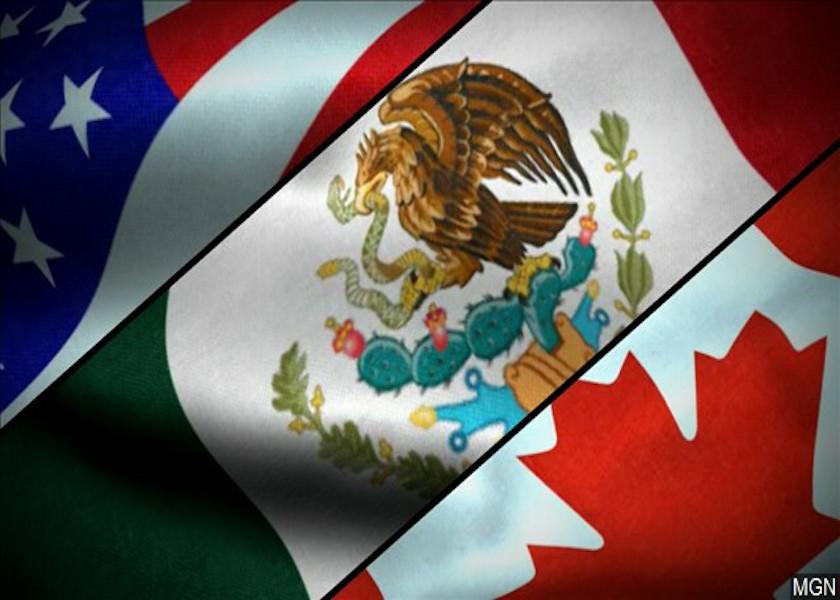Biden Administration Scores First USMCA Trade Dispute Victory Over Dairy, Canada Also Claims Victory

Dairy tariff-rate quotas (TRQ) have been a point of contention since the United States reached an agreement with Canada over the dairy portion of the United States-Mexico-Canada Agreement (USMCA). And just over a year and a half since the new agreement went into effect, the United States won its first challenge over dairy.
U.S. Trade Representative Katherine Tai announced Tuesday that the United States prevailed in its first dispute settlement panel proceeding brought under USCMA. The panel concluded Canada is breaching its USMCA commitments by “reserving most of the in-quota quantity in its dairy tariff-rate quotas for the exclusive use of Canadian processors.”
“Enforcing our trade agreements and making sure they benefit American workers and farmers is a top priority for the Biden-Harris Administration,” Tai said after the ruling. “That is why this Administration filed the first-ever panel request under the USMCA. This historic win will help eliminate unjustified trade restrictions on American dairy products and will ensure that the U.S. dairy industry and its workers get the full benefit of the USMCA to market and sell U.S. products to Canadian consumers.”
The dispute panel issued its ruling to both the U.S. and Canada on Dec. 20, and Canada now has 45 days from then to comply with the ruling. Agriculture Secretary Tom Vilsack says the key to making sure USMCA is successful is enforcement.
Good news for U.S. dairy farmers. This enforcement action reflects the Biden-Harris Administration’s deep commitment to enforcing the USMCA and to ensuring that U.S. trade policy works for American farmers. https://t.co/kGtq7m5v5e — Secretary Tom Vilsack (@SecVilsack) January 4, 2022
“This ruling is a big step for the U.S. dairy sector towards realizing the full benefits of the USMCA and securing real access to the Canadian market for additional high-quality American dairy products such as milk, cheese and skim milk powder," says Vilsack. “In order for trade deals to be effective and have the trust of the American people, they must be enforced. Today’s action reflects the Biden-Harris Administration’s deep commitment to enforcing the USMCA and to ensuring that trade rules work for American farmers, ranchers and producers. It also signals to our trading partners that that the United States will stand firm against unjustified trade restrictions and continue fighting on behalf of our farmers and workers to ensure that we have full and fair access to foreign markets.”
Tough Dairy Deal From Start
Dairy was a major hurdle in finalizing a USCMA agreement under the Trump Administration. The U.S. and Canada reached an agreement on dairy just before the three countries finalized the entire trade pact. The Trump administration had been adamant that without dairy, no trade deal would be reached.
However, some Canadian dairy groups argued the agreement reached by both countries was only a benefit to the U.S., not Canada.
Since the agreement took effect, the U.S. has argued Canada wasn’t following through on what it promised under the trade deal. And on May 25, 2021, the United States issued a formal request for a panel to be established under Chapter 21 of USCMA. The panel then reviewed Canada’s actions since USCMA went into effect. And in a hearing marking the one-year anniversary of USCMA, dairy leaders applauded the Biden Administration for following through with efforts to hold Canada accountable.
Idaho dairy producer Allan Huttema, who’s also a member of the National Milk Producers Federation (NMPF) Executive Committee, testified last July. He said enforcement of the plan is essential for the agreement to reach its potential for U.S. dairy farmers.
“As we like to say on the farm, ‘A deal is a deal,’ which is why our industry appreciates the decision by the USTR Trade Representative, Katherine Tai, to initiate a dispute settlement proceeding with Canada over its government’s administration of the dairy rate tariff rate quota system,” Huttema said. “We are grateful for this committee’s support and advocacy, and in securing that step. I am Canadian born and I have worked in that system, so I know that their government will do all they can to avoid fulfilling their dairy commitments.”
Dairy Leaders Respond
International Dairy Food Association (IDFA) was instrumental in helping top trade officials push for changes in Canada’s dairy policy. After the ruling Tuesday, IDFA said Canada committed to ensuring its TRQs would be fair and equitable, but says the administration of TRQ discouraged imports by setting aside quota allocation for Canadian processors instead.
“IDFA applauds the U.S. government’s commitment to ensuring Canada’s dairy trade obligations are upheld,” says Michael Dykes, President and CEO of International Dairy Foods Association (IDFA). “IDFA is pleased to join our global dairy industry partners today in welcoming the USMCA panel’s findings and promoting Canadian dairy policy accountability.”
Dairy Farmers of America (DFA) also applauded the dispute decision.
“Trade and export opportunities are vital to our industry, so this is a really important win for dairy farmers across the United States,” says Randy Mooney, a dairy farmer from Rogersville, Mo., and chairman of DFA’s Board of Directors. “We greatly appreciate the hard work and leadership of the U.S. Trade Representative’s office (USTR), U.S. Department of Agriculture (USDA) and Congress in this process. Additionally, we thank National Milk Producers Federation (NMPF) and the U.S. Dairy Export Council (USDEC) in securing the support from U.S. policymakers to pursue action in this case.”
Canada Also Claims Victory
While the U.S. says Tuesday’s announcement is a win for the U.S., Canada is also claiming victory in Tuesday’s ruling. The trade and agriculture ministries released a statement saying Canada has “taken note of the panel’s finding regarding Canada’s practice of reserving TRQ pools for the use of dairy processors,” and “takes its commitments and obligations under international agreements seriously.”
Canadian leaders said the panel’s ruling “expressly recognizes the legitimacy of Canada’s supply-management system,” and confirmed that the country “has the discretion to manage its TRQ allocation policies,” that supports Canada’s supply-management system.
As Canada is now under the clock to comply with the dispute panel’s ruling, IDFA said Tuesday that impacted dairy associations “encourage U.S. and Canadian governments to work collaboratively towards an outcome that provides impacted industries with fair and equitable TRQ administration that facilitates greater market certainty.”
You can read the entire ruling here.
More USMCA Coverage:
As USMCA Dairy Dispute Plays Out, Here's Why It Could Be a Positive for U.S. Dairy Farmers







